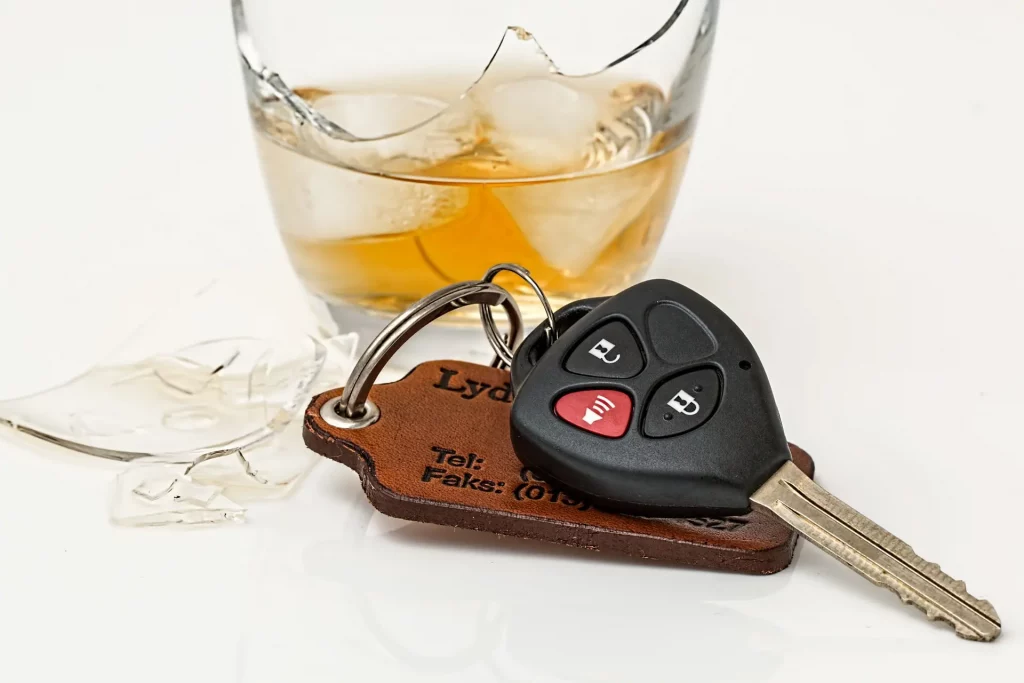Being in a car accident is a stressful and overwhelming situation, so it’s very common to be in shock and forget to do certain critical things, like calling the police, contacting your insurance company, or writing down witnesses’ information.
What should I do first after a car accident?
The first thing is not to panic. If you were driving, try to pull over and check that you and all other passengers are safe and well. Then, you need to call the police and file a police report, exchange information with the other persons involved, and let your insurance company know that another driver hit your car. You may also want to document the damages to your vehicle by taking pictures and, if possible, ask any witnesses for their contact information.
Minor damages
You may wonder if you need to involve an insurance company at all, and the other driver might even encourage you to leave them out of it too. DON’T DO THIS! You should always let your car insurance company know, as soon as possible, that you were in an accident to get it on record and begin the claim process, or even to have them help you if you need roadside assistance, for example.
Someone hit my car and it wasn’t my fault. Whose insurance do I call?
In this case, it can go two ways:
-
If the person who hit your car is not clearly at fault or if they believe or say it was not their fault, you should contact your insurance company, they will work together with the other person’s insurance company to determine who was at fault once all the details are in place and the police report is reviewed.
-
The other scenario is when the other driver was clearly at fault and agrees that it was their fault: In this situation, you can file a third-party claim, where their liability coverage will pay for the damages caused, which can also include medical and other necessary expenses. You should also contact your insurance company and let them know you are filling a third-party claim.
The bottom line is, if you are found not to be at fault for the accident, then the other person and their insurance company are responsible and have to pay.
The person who hit my car doesn’t have insurance, or their liability coverage isn’t enough
When this happens, the Uninsured/Underinsured Motorist Coverage (UM or UIM) of your insurance policy comes into action. In NY state this is a required coverage that every auto insurance policy must contain, so it can protect you and help you pay for the damages of the accident.
Similar to this, you also have the Collision Coverage component, which protects you no matter who was at fault; this is optional coverage. Collision coverage will cover the damage to your car if you are hit by someone else, or if you caused the accident, or even if there were no other drivers involved. Make sure to carefully review your policy and limits before deciding what type of claim to pursue.
My car was hit while parked, now what?
When this happens, the whole situation must be handled the same way as if you had been driving when the accident occurred, meaning you need to call the police and your insurance company immediately.
In most cases, when your parked car is hit, you are not around to see who was responsible, but if they left a note with their information, you should share this with the police, for they can investigate properly. It would be best if you also did this with your insurance company, that way, they can work with the other driver’s insurer to settle the claim correctly.
If the person who hits you does not leave their information and it’s not around when you get to your vehicle, then the accident is classified as a hit-and-run, and a police report needs to be filed. In this case, your insurance company may consider the other driver as uninsured.
Notice that a hit-and-run can also happen while driving, as long as the other driver takes off without providing his information.
Insurance & hit-and-run car accidents
If you have Uninsured/Underinsured Motorist Coverage, your insurance may cover or reimburse the costs of repairing the damages to your vehicle. Your Collision Coverage can also help, but keep in mind that collision coverage usually requires a deductible. Hence, if the repair costs are less than the deductible, you may benefit by paying them out-of-pocket.
Another item of your auto policy that may assist you, in this case, is Personal Injury Protection (or PIP). Similar to collision insurance, this covers you no matter who was at fault, and it may also cover your passengers if they were injured during the hit-and-run.
Will my insurance go up if someone hits my car?
Not necessarily. Your rates are more likely to go up if you’re at fault for an accident than if you’re involved in a hit-and-run or an accident caused by someone else. If you’re in a hit-and-run accident, your car insurance rates may not go up, but it depends on your insurer and the contractual conditions of your policy.
If you still have questions or need further legal assistance, you should CONTACT ROSENBERG AND RODRIGUEZ LLC.
At Rosenberg & Rodriguez, your safety as our client is the number one priority. We can meet with you via phone, virtual meeting platform, or in-person with an appointment. Our firm is also available to offer services in Spanish and Russian!




